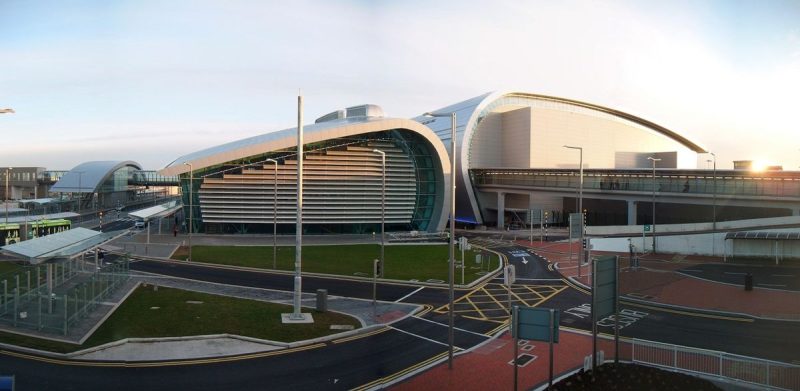Night flights are important for the Irish economy, says Aidan Flynn
Dublin Airport operator daa has secured a temporary stay on plans to ban night flights.
The ban – announced in late July with a six-week notice period – would have reduced the number of flights using Dublin’s north runway between the hours of 11pm and 7am.
The airport operator said the ban would have caused it to cancel thousands of flights.
The news of the stay was welcomed by Freight Transport Association Ireland.
Chief executive Aidan Flynn said the night flights were important to the Irish economy.
“Night flights are critical to the continued and efficient supply chain across Ireland,” said Flynn.
“They ensure that time-sensitive goods such as specialist foods and high-value items can be delivered at the start of the working day, maximizing productivity for thousands of organizations across the country, and ensuring minimal delays for consumers.
“Airfreight makes a significant contribution to the Irish economy – cargo night flying supports €1.1bn per annum in GDP and 15,000 jobs, and accounts for 38% of all freight transported via Dublin Airport.
“Reduction of nighttime flight slots would have a disproportionate impact on logistics businesses and their customers across Ireland, and reduce the effectiveness of Irish trade, as well as having a significant impact on services to European and global supply chain partners.”
In August 2022 the Airport Noise Competent Authority (ANCA) published a decision which amended two conditions attached to the granting of planning for the North Runway.
These included amended use of the runway to prevent any arrivals or departures between 0000 and 0559 hours, and the implementation of a quota system for nighttime noise at the airport.
“Any changes to the complex schedule of flights could have a significant impact not only on business but on Ireland’s reputation as a trading nation,” said Flynn.
“It is imperative that the implementation of any changes to current flight schedules be delayed for a minimum of six months, to give An Bord Pleanála time to complete the necessary research successfully and make a considered decision on the Air Noise Competent Authority (ANCA)’s decision.”


